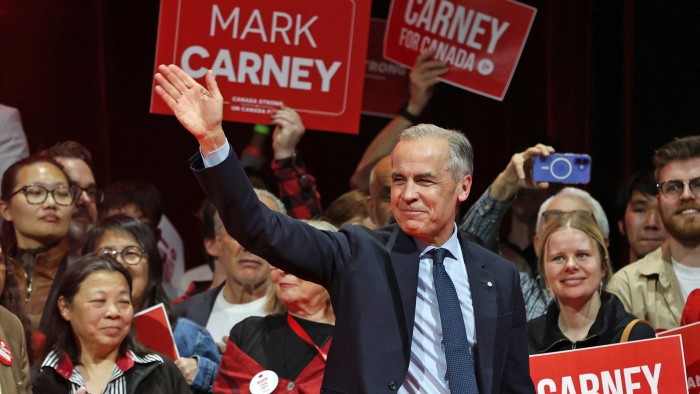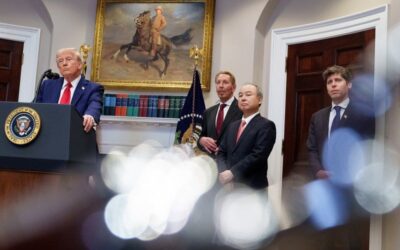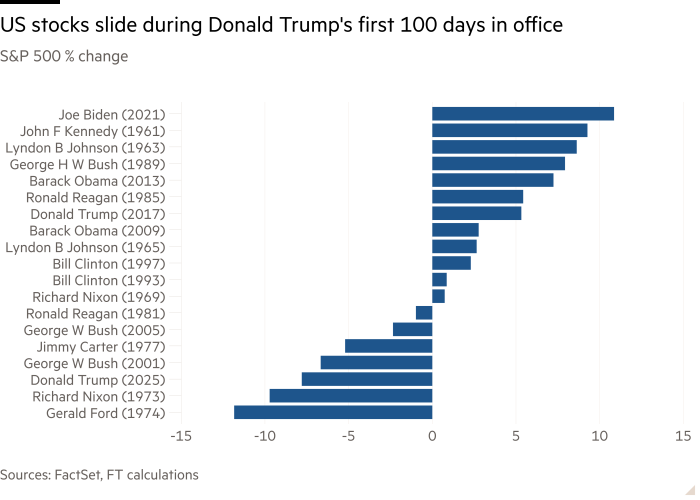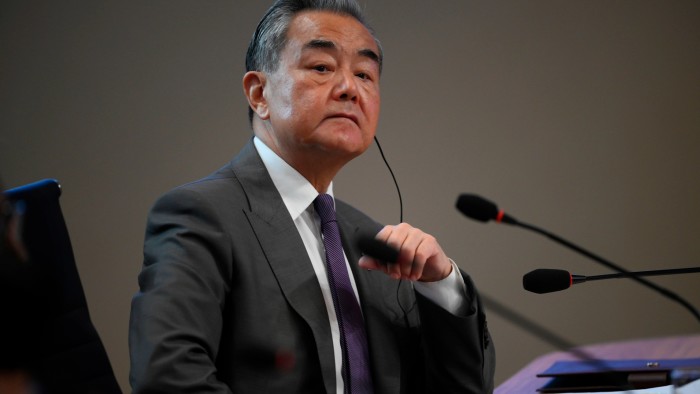Mark Carney: democracy’s unTrump

Unlock the White House Watch newsletter for free
Your guide to what Trump’s second term means for Washington, business and the world
“I would like to thank Donald Trump without whom this would not have been possible.” Mark Carney, Canada’s 24th prime minister, was too tactful on Monday to actually give the US president credit for his party’s return to office. But it is the Lord’s truth. By coveting Canada’s sovereignty, Trump turned the semi-Trumpian Conservative party’s projected landslide into defeat in the space of weeks. Not bad for the US president’s first 100 days. He might do a similar favour for Australia’s incumbent Labor party this weekend without even threatening to annex the country.
But Carney deserves credit for nailing his opponent Pierre Poilievre to the Trumpian mast. Instead of Poilievre’s me-too “Canada First”, Carney proclaimed “Canada Strong”. He did so while also distancing himself from Justin Trudeau, his deeply unpopular predecessor as Liberal prime minister. There are lessons here for Democrats. Had Kamala Harris thrown Joe Biden under the bus with the same dispatch as Carney did to Trudeau, she may have defeated Trump last November. Most of all, Carney showed that non-populists can win in the right conditions — in this case as foil to the world’s chief populist.
Full disclosure: I have known Carney since the early 1990s. Though his skills as an economist and central banker were clear, Monday was the first time he stood for election. He turned 60 last month, two days after replacing Trudeau. It is hard to overstate how improbable this looked a few months ago. Carney worked for Goldman Sachs in London and New York. Then he headed the Bank of Canada. After that he became governor of the Bank of England. Then he joined a global investment firm. He promoted ESG at the UN — two abbreviations that would normally debar him from impolite company. If globalism had a name and a face, it would be Carney’s.
Only Trump could have converted these millstones into wings. In that respect, America’s 47th president plays unwitting ally to democracy everywhere except at home. He gave Canada’s median voter a crash course in the merits of rules-based internationalism. As the only person to have run two G7 central banks, Carney can claim to know how the global economy works. Canada, like the EU, Mexico and most other countries, has suddenly awoken to the perils of a renegade America. If the US president can threaten the sovereignty of its neighbour and loyal ally, which country is safe?
There are two broader Trump-handling takeaways. The first is that obeisance costs more. Not only does Trump disrespect sycophants, he goes out of his way to humiliate them. That also applies to foreign leaders. Trudeau got on a plane to Palm Beach in November when Trump first threatened tariffs on America’s neighbours. Mexico’s leader, Claudia Sheinbaum, did not make the trek. Trump speaks of her with respect; he kept taunting Trudeau as “governor of the 51st state”. Leaders tempted to cut hasty side-deals with Trump should beware. His signature is not binding. Nor will voters necessarily reward them for cosying up to him. Famously commonsensical Canada reminds us that some things — patriotism, dignity — can be valued higher than short-term growth.
The second is that Trump is bad for Trumpians. Poilievre sold himself as a milder version of Trump. Peter Dutton, leader of Australia’s (conservative) Liberal party, has done so more brashly. Both locked themselves into a cage of someone else’s making. When Trump took steps to harm their nations’ economies, they could not easily repudiate him. Even low information voters know a flip-flopper when they see one.
Other rightwing leaders, notably Italy’s Giorgia Meloni, are resisting a full embrace of Trump. Britain’s Sir Keir Starmer should also pay heed. The more he can depict the populist Reform UK’s Nigel Farage as Trump’s stooge, the tougher his implicit criticism of Trump. Alternatively, Starmer might strike a tariff deal that flattered Trump but could alienate Britain’s friends and partners. It would take guts — but not an unrealistic level of skill — for Starmer to paint both Brexit parties, including the opposition Conservatives, as stooges of a foreign strongman.
Therein lies Trumpism’s self-detonating core. Just as Trump is dismissive of allies, he has no loyalty to friends. A large share of congressional Republicans back him out of fear, not devotion. Here again, Trump is providing the world with a crash course. The best way of redeeming the vow of “America [or Canada, Brazil, Britain, Italy, Mexico etc] First” is to play nicely with others. Power and prosperity are multiplied by friends.




